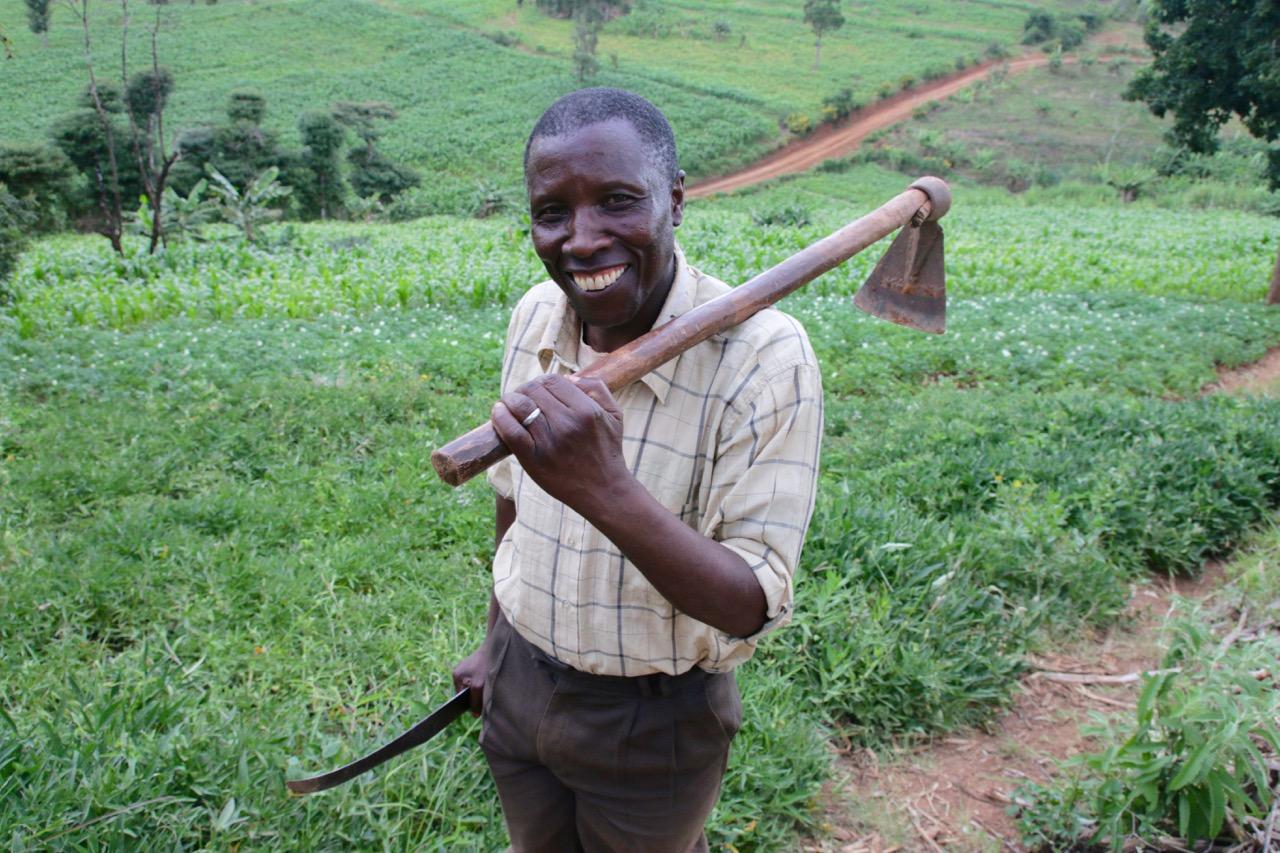Giants Club builds 100 mile fence in Kenya to protect elephant population

Paul and Elizabeth Njoroge's farm in central Kenya is a fertile five acres on a steep slope where crops flourish enough that the family should be relatively wealthy.
Instead, Mr Njoroge, 53, occasionally needs food hand-outs, and often struggles to pay the costs of his children's education.
The reason for his impoverishment is a problem that will soon surpass poaching as the greatest threat to Africa's elephants: what conservationists call 'human-wildlife conflict'.
Elephants from a wildlife conservancy whose boundary lies less than a mile from the Njoroges' land regularly roam into their fields looking for food. Entire harvests can be lost in one night of such 'crop raids'.
Villagers angered at the elephants' incursions injure or occasionally kill them as they chase them away. In this area of Kenya, penniless farmers together lose crops worth more than £700,000 each year from a daily average of 10 incidences of human-elephant conflict.
A simple solution began to be put in place on Friday, however: a three-foot high fence that will eventually stretch for close to 100 miles past farms like the Njoroges', pulsing 7,000 volts along its length to deter elephants from crossing from their land into farmland.
The West Laikipia Elephant Fence is the first project to launch with funds pledged at the inaugural Giants Club Summit that Kenya's president Uhuru Kenyatta hosted six weeks ago.
It raised more than £3.5 million for new elephant-protection projects in Kenya, Botswana, Uganda, and Gabon, the founding members of the Giants Club, whose patron is Evgeny Lebedev, the owner of independent.co.uk.
The Laikipia Plateau has Kenya's second-highest density of elephants, with more than 6,300 individuals sharing 4,000 fertile square miles with an increasing human population needing ever more land to farm. It faces perhaps the worst human-elephant conflict in East Africa.
“We don’t hate the elephants, but their activities are making us poor,” said Mr Njoroge. “I have this big farm but yet sometimes I have to go for food handouts from the government.” He has lost £3,000 of maize, sugarcane, and avocados in less than two years. The fence, he says, will make an enormous difference to his family's situation. “What it means is no more lost crops, a better income, and a better chance to pay for important things like school for my children,” he said.
Max Graham, CEO of Space for Giants, a Kenyan conservation charity helping to finance and build the new West Laikipia Elephant Fence, said farmers like the Njoroges were "on the frontline" between agriculture and conservation.
"While the elephant poaching crisis is a massive emergency problem, human-elephant conflict over the long term is going to be the single biggest issue for elephant conservation in Africa," he said.
"The big challenge here is smallholder farmers in this area can't support elephant conservation if they are losing crops to elephants. If we don’t stop that, we will never have support of the local communities.”
Space for Giants, the British Army Training Unit in Kenya (Batuk), the Governor of Laikpia County, the Leopardess Foundation, and Laikipia-based partners together officially launched the construction of the new $1 million fence on Friday.
"Poaching is a problem, yes, but the biggest challenge we face in terms of wildlife conservation is finding space for wildlife," said Judi Wakhungu, Kenya's environment and natural resources cabinet secretary.
"As our human population grows, there's a lot of pressure to develop facilities and infrastructure, and we're losing space for wildlife. I think projects such as this that we're launching today help to assure Kenyans that we have enough space in this country for our population growth, and we also have enough space for wildlife."
The British Army has a historic agreement with Kenya allowing it to pay to use areas of Laikipia for major exercises. The British Army Training Unit in Kenya (Batuk) trains around 10,000 British soldiers each year in the region. A key part of their partnership with Kenya is to help implement community projects like the new fence, to which Britain gave £150,000, said Col. Tom Vallings, Batuk's Commander.
"It really is a win-win-win situation," said Col. Vallings. "It's a win for the elephants, it's a win for the communities, and it's a win for Batuk because we help cement our relationship with the communities. In helping to protect the elephants, we're protecting our training areas."
The new fence follows the line of a previous one built several years ago that swiftly fell into disrepair owing to damage by both elephants and people. Its replacement is a completely different design.
Its posts stand only three feet high, meaning they are too short for elephants to lever out of the ground. They carry far higher voltages of electricity than before: up to 7,000 volts at low current pulses that give a sharp shock to the elephant but do no lasting harm.
They use low-level 'outriggers', three-feet-long wire antennas sprouting from the fence-line at a 45-degree angle that deliver shocks to the elephant's chest before it can reach the posts with its trunk or tusks.

Join our commenting forum
Join thought-provoking conversations, follow other Independent readers and see their replies